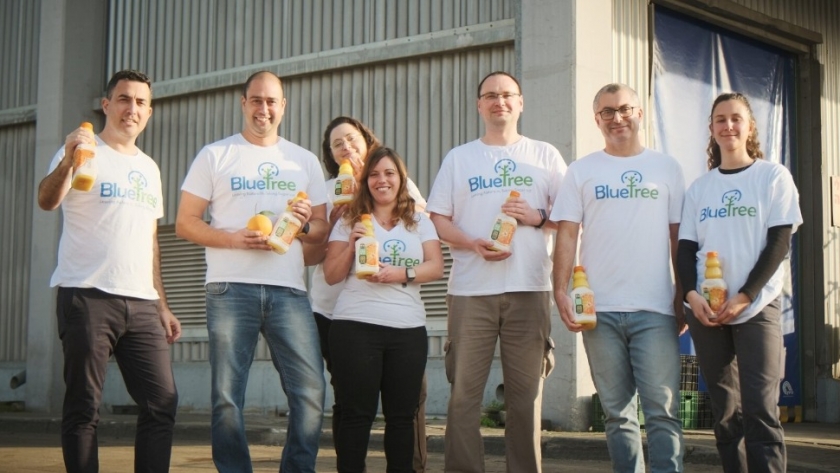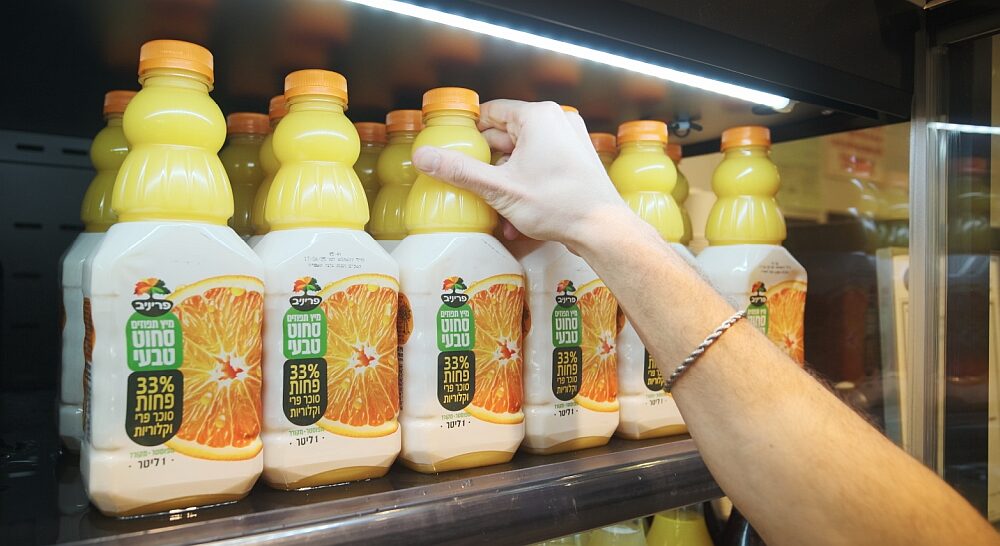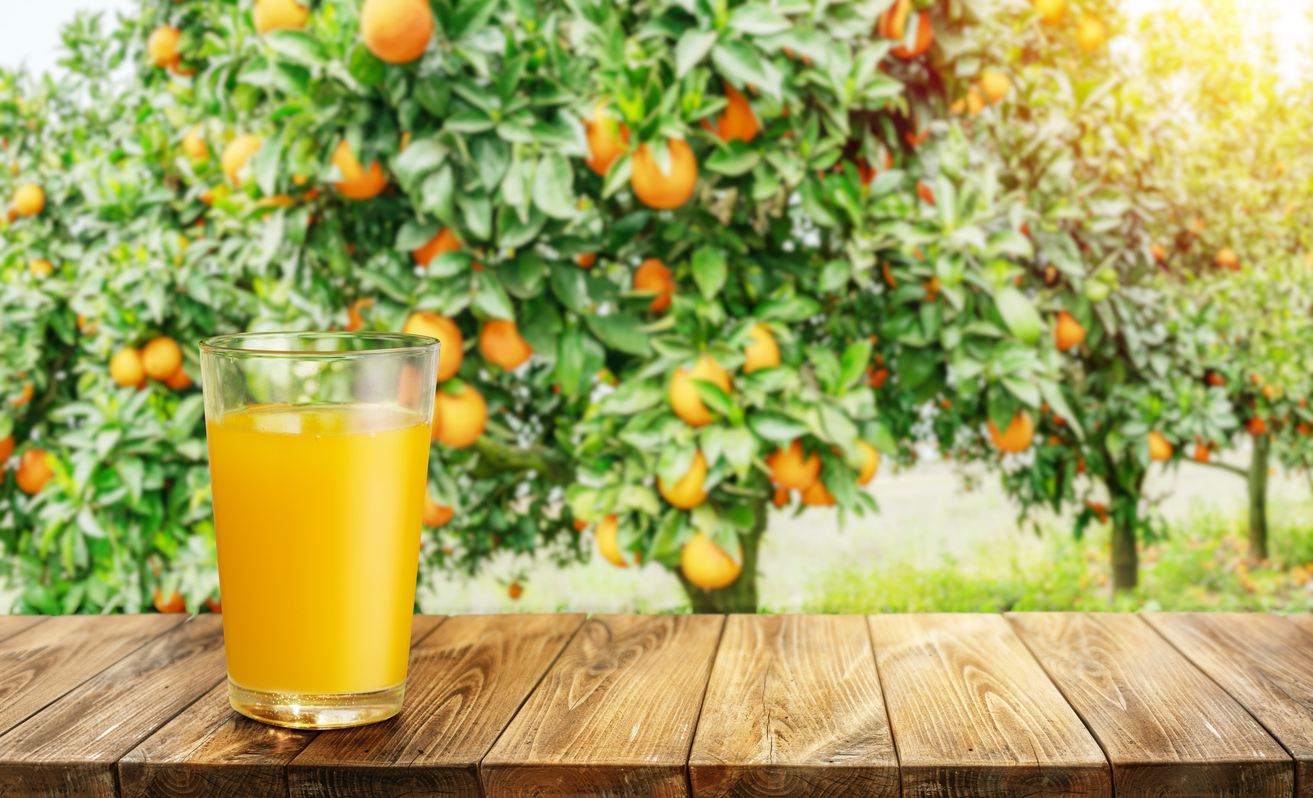
By Agroempresario.com
BlueTree Technologies, a pioneering Israeli startup, is making significant strides in the food and beverage industry with its innovative sugar reduction technology. By leveraging a patented process to selectively remove sugars from juices and milk, the company is positioning itself to revolutionize the beverage sector across key global markets, including Latin America and Southeast Asia.
In recent months, BlueTree has been rapidly expanding its footprint. The company has successfully scaled its technology in partnership with Israeli juice manufacturer Priniv and has already signed agreements with a juice manufacturer in Thailand. In addition, the startup is in advanced discussions with leading juice players in Latin America, making it clear that the company is ready to make a global impact with its novel approach to sugar reduction.
According to CEO Michael Gordon, the installation of the technology at Priniv was a major milestone for BlueTree. “The orange juice with 33% less sugar is now in the market, and they are very satisfied with the results. This is huge for us because the first question any potential customer asks us is: Does your tech work on an industrial scale, and can we see it for ourselves? The answer on both counts is now yes,” Gordon said in an interview with AgFunderNews.
This achievement has set the stage for further expansion. BlueTree recently signed a deal with a juice manufacturer in Thailand, which is navigating the final stages of implementing a sugar tax on beverages. Furthermore, the company has partnered with a dairy company in Latin America to develop low- to zero-sugar dairy products. Notably, BlueTree has already succeeded in achieving milk with less than 5% sugar content, a critical milestone for the “zero sugar” label.

The demand for reduced sugar products in Latin America is growing rapidly, largely driven by the region’s increasing sugar taxes and changing consumer preferences. Gordon explains that, in many Latin American countries, juice consumption has shifted from a daily habit to an occasional treat, with consumers actively seeking reduced-sugar options.
Additionally, regulatory measures in some markets are pushing companies to rethink their product offerings. For example, countries like Chile require front-of-pack warning labels for products deemed high in sugar, while Mexico, Peru, and Uruguay mandate labeling for products that are high in sugar, sodium, or saturated fat. These regulations are driving the need for innovative solutions like BlueTree’s sugar reduction technology.
In response to these trends, BlueTree has raised a small funding round backed by investors from Latin America. “Our focus is on Latin America and Southeast Asia not just because there are local markets there we can reach, but because so much fruit is grown and processed there for export markets such as the US and Europe,” said Gordon.
Countries like Brazil, Argentina, and Mexico are major producers of citrus fruits, while Central America and Southeast Asia are key hubs for tropical fruit production. BlueTree aims to partner with several manufacturers in these regions to create sugar reduction hubs, which will provide sugar-reduced juice for both local populations and export markets.
Over the past year, BlueTree has conducted over 10 successful trials with global beverage brands. These trials involve BlueTree receiving raw material from the brands, reducing sugar at its partner Priniv’s industrial-scale plant, and then sending the juice back for testing. This process has proven successful and demonstrated that the technology can be applied on a large scale.
On the regulatory front, BlueTree has already achieved self-GRAS (Generally Recognized As Safe) status in the United States. In Europe, the company commissioned a legal and scientific assessment from Rödl & Partner, which concluded that BlueTree’s process is highly unlikely to be classified as a "novel" food under EU law. As a result, BlueTree's technology can be used in the EU without requiring pre-market approval.

BlueTree’s sugar reduction technology stands out for its ability to reduce sugar content without compromising taste or the clean label credentials of the product. Unlike traditional methods such as dilution with water or blending juices with lower sugar content, BlueTree uses a patented two-step process that combines ultrafiltration and adsorption to selectively remove disaccharides like sucrose, lactose, and maltose from juice, milk, or beer.
According to Gordon, disaccharides are not as sweet as monosaccharides (simple sugars like glucose and fructose), so removing a portion of the disaccharides doesn’t drastically affect the sweetness of the product. For example, a 20% reduction in sugar results in only a subtle decrease in perceived sweetness. This approach allows BlueTree to achieve a significant sugar reduction while maintaining the integrity and taste of the original beverage.
BlueTree’s first patent describes a process that utilizes ultrafiltration and adsorption with mineral zeolite, which acts like a magnet to selectively capture disaccharides while leaving the monosaccharides and organic acids intact. The company has also applied for a patent on an alternative smart separation layer solution that is ideal for very high-capacity production.
One of the key advantages of BlueTree’s technology is that it does not interfere with high-pressure processing (HPP), a cold pasteurization method that preserves the fresh taste and texture of juice. In contrast, enzyme-based sugar reduction technologies cannot be used in conjunction with HPP because the enzymes are not killed during the process.
As BlueTree expands into global markets, labeling requirements are a critical consideration. In the United States, juice products treated with BlueTree’s technology can be labeled as "sugar-reduced juice" as long as they contain 100% juice with no added ingredients. In Europe, however, juices processed with BlueTree’s technology must be labeled as a “drink” or “beverage” rather than “juice.” This is expected to change with the implementation of new regulations under the “breakfast directives,” which will allow terms like “reduced-sugar fruit juice” as long as nothing has been added to the product. These changes are expected to come into effect in June 2026, prompting European brands to begin collaborating with BlueTree now to ensure they are ready for the shift.
The growing consumer demand for lower-sugar products is not just a regional trend but a global one. Consumers want beverages that are not only lower in sugar but also free from artificial additives and other unnecessary ingredients. BlueTree’s technology meets this demand by enabling companies to produce clean-label products with reduced sugar content, without compromising taste or quality.
In addition to juices, BlueTree’s technology works across various types of beverages, including concentrates, not-from-concentrate juices, and even high-pressure processed (HPP) juices. The system also reduces the weight of juice concentrate, making it more cost-effective to transport.
Looking ahead, BlueTree Technologies is focused on expanding its presence in Latin America and Southeast Asia, both of which are crucial markets for the company’s growth. By partnering with regional manufacturers, BlueTree aims to create a network of sugar reduction hubs that can supply sugar-reduced juices to both local markets and export destinations.
As the demand for healthier, low-sugar beverages continues to rise, BlueTree is well-positioned to capitalize on this trend with its innovative, scalable technology. With successful trials, key partnerships, and a strong regulatory track record, BlueTree is poised to play a major role in shaping the future of the global beverage industry.
